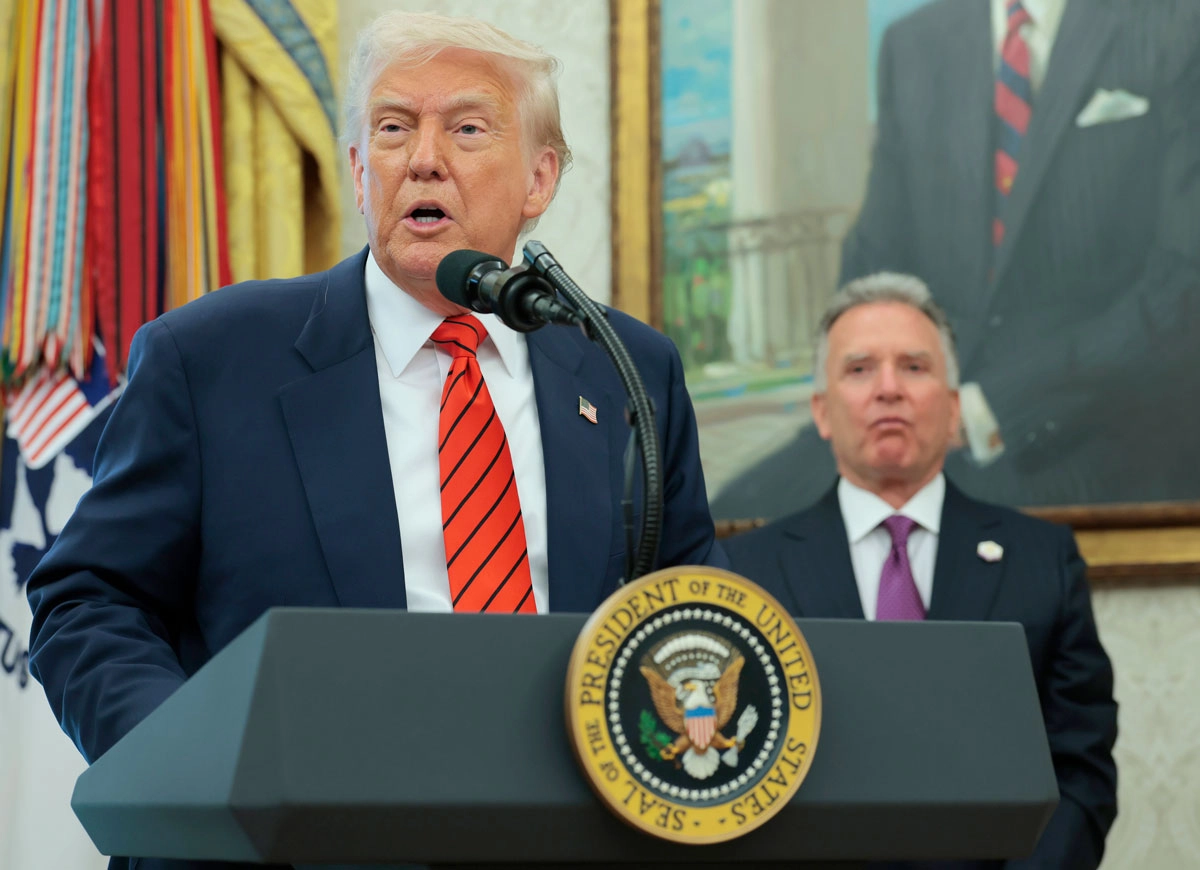

WASHINGTON, DC - MAY 06: U.S. President Donald Trump delivers remarks during a swearing-in ceremony for Special Envoy to the Middle East Steve Witkoff in the Oval Office at the White House on May 06, 2025 in Washington, DC. Trump provided an update on the Houthi conflict in the Middle East. (Photo by Anna Moneymaker/Getty Images)
Steve Witkoff, President Donald Trump’s special envoy for the Middle East, has relied on Kremlin translators for his meetings with Russian President Vladimir Putin, according to NBC News, citing a U.S. official and two Western officials.
Witkoff, who has become Trump’s de facto personal envoy to Putin, has met with him several times in recent months. Most recently, they met in Moscow on April 26, following a missile attack that killed 12 people in Kyiv.
Witkoff, who does not speak Russian, did not employ his own interpreter during these meetings, officials told NBC News. This decision deviates from typical protocols, leaving him reliant on translators provided by the Kremlin.
“If they speak to each other in Russian, he doesn’t know what they are saying,” one Western official said.
Subscribe to our free weekly newsletter!
A week of political news in your in-box.
We find the news you need to know, so you don't have to.
The former U.S. ambassador to Russia, Michael McFaul, said that Witkoff using Kremlin interpreters is “a very bad idea.”
“I speak Russian and have listened to Kremlin interpreters and U.S. interpreters at the same meeting, and the language is never the same,” McFaul told NBC News.
While there are mixed opinions on how Witkoff handles high-profile negotiations, the White House Deputy Press Secretary Anna Kelly said that he “abides by all security protocols in coordination with the State Department.”
Trump is not pleased with the inability to secure a ceasefire in Russia’s war with Ukraine. Trump continues to change his stance on this war, going back and forth from cutting all aid to Ukraine, threatening sanctions and tariffs on Russia, to once again defending Putin.
Trump backed Ukraine and Europe’s proposal for a 30-day ceasefire, which would have begun on May 12, but Putin did not agree to this deal. On May 11, he invited Ukraine to begin direct negotiations on May 15.
Both Putin and Volodymyr Zelensky, the president of Ukraine, did not attend this peace meeting. Putin sent a second-tier delegation. At the same time, Zelensky sent Defense Minister Rustem Umerov to lead the Ukrainian delegation.
There is no ceasefire in place at this moment, and Trump said he thinks there will be no deal until he meets with Putin.
Right-wing conservative Candace Owens accused President Donald Trump of thinking his voters are "stupid," amid…
President Donald Trump is calling for Sen. Adam Schiff (D-California) to be arrested for alleged…
Rep. Mike Lawler (R-New York) announced Wednesday he will not run for governor and will…
French President Emmanuel Macron announced Thursday that France will officially recognize a Palestinian state. Macron…
On Monday, the Trump Administration released thousands of files related to the assassination of Martin…
The Department of Justice interviewed Jeffrey Epstein’s former partner, Ghislaine Maxwell, on Thursday following a…